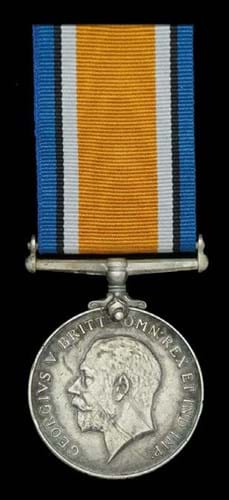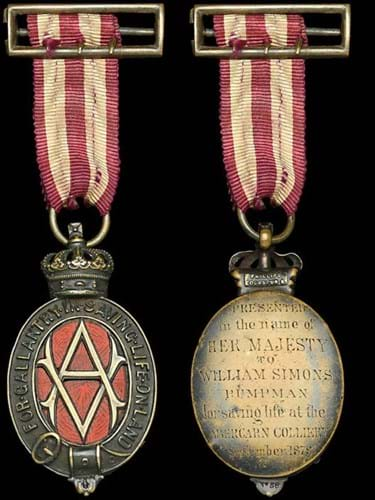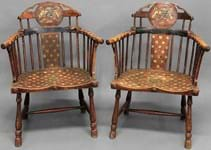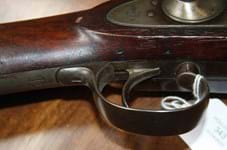The British War Medal (1914-20) offered at Dix Noonan Webb (24% buyer’s premium) had been given to Sapper Gordon Goines of the Canadian No 2 Construction Battalion, which was also known as the ‘Black Battalion’.
Goines was a black volunteer (his enlistment and discharge papers confirm his complexion as ‘Colored’) who was born in Wallington, Ontario, in 1885 and posted to the Canadian Overseas Expeditionary Force at Windsor, Ontario, in January 1917.
He was enrolled in No 2 Construction Battalion and departed Halifax, Nova Scotia, as part of a force of 19 officers and 605 other ranks, on the SS Southland, that arrived in Liverpool in April 1917.
The following month, the status of the unit was changed from a battalion to a company, and Goines served with his unit during the Great War on the Western Front from May 17, 1917, as part of the Canadian Forestry Corps, and also with the Canadian Overseas Railway Construction Corps.
He returned to Canada after the Armistice, was demobilised in 1919, and died in December 1956.
His medal was estimated at £500-700 on April 20 and sold for £1000. It was offered along with a copied copy of his service papers and a copy of the book The Black Battalion by Calvin W Ruck.
Oliver Pepys, associate director and medal auctioneer at DNW, said: “At the start of the war many Canadians were keen to enlist and support their country. Many black Canadians also wanted to be involved.
“However, in 1914 there weren’t many black people in the Canadian military due to racial opinions and a lot of those who attempted to enlist were rejected. After members of the black community demanded through a petition to be included, the No 2 Construction Battaltion was formed and went on to play a crucial part, like many people of colour, in the war.”
Colliery disaster
An Albert Medal Second Class for Gallantry in Saving Life on Land offered by DNW was awarded to William Simons for his heroics during the Abercarn Colliery disaster.
It tells a harrowing story. Shortly after midday on September 11, 1878, with 325 men and boys working underground, a large explosion had ripped through the Prince of Wales Colliery in Monmouth.
Known to his Welsh workmates as ‘Willie the Pump’, because he handled the huge water pump which kept the underground galleries from flooding, Simons had helped bring up around 80 survivors in the aftermath, many of them badly burnt. The coroner’s report recorded that “the pump-man never ceased from continuous labour for 12 or 14 hours after the explosion, although he, too, was surrounded by danger nearly every moment”.
Ultimately the disaster claimed 268 lives.
Made by the London jeweller Phillips of Cockspur Street in bronze and enamel, the reverse of the medal is engraved Presented in the name of Her Majesty to William Simons, Pumpman, for saving life at the Abercarn Colliery, September 1878.
Estimated at £4000-5000, it sold on the low estimate.

















